A good science book won't just teach you some interesting facts: it will help you to look at the world around you in a different way. Whether it's an archaeology book that helps you to re-evaluate humans' place in the natural world, or a cosmology book that takes you back to how it all began, you'll come out the other side with a brand new perspective.
For those with a curious mind, science books are an invaluable resource for learning about subjects you have no idea about. From the more mainstream subjects like health, psychology and wildlife, to the more intense topics like quantum physics and geometry, to the more light-hearted subjects like food science, there's sure to be plenty of new stuff to learn.
Whatever your taste, there are new, brilliant science books being released every week. We've picked our choice of the very best, so read on for plenty of inspiration to expand your personal library.
If you're in the mood for something specific, we also have plenty of reading lists on various subjects to help you choose.
In no particular order, here are some of our very favourite science books.
The best science books to read in 2025
The Joy of Science
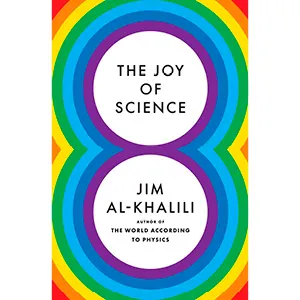
Jim Al-Khalili
In Jim Al-Khalili’s latest offering, The Joy of Science, we are presented with eight lessons in how to lead a more rational life and see things as they really are. It’s an easily digestible, pocket-sized guide in how to think more scientifically, and how this can benefit us in everyday life.
Looking at things objectively can help break down social constructs and pre-existing beliefs, and the ideas at the heart of scientific method are deeply relevant as we try to navigate the complicated times that we live in.
- Listen to Jim explain the origins of the Universe on the Science Focus Podcast
Insectpedia: A Brief Compendium of Insect Lore
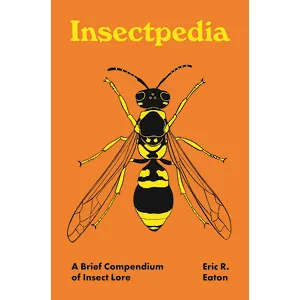
By Eric. R. Eaton
With hand-drawn illustrations, anecdotes, and curious facts about some of the most fascinating bug species on the planet, this pocket-friendly encyclopaedia is a delightful and entertaining collection of insect lore and storied history of entomology.
From murder hornets and jumping beans to mole crickets and zombie lady-beetles, Insectpedia has a charming blend of insect facts and mythology. It’s presented in an A-Z format, making it easy to pick up and read for only a few seconds to learn something new. This is an ideal book if you like to start conversations with, “Hey, did you know…”
Geopedia: A Brief Compendium of Geologic Curiosities
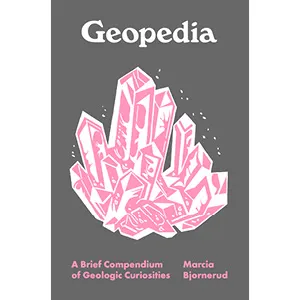
By Marcia Bjornerud
Discover a treasure trove of bizarre and awe-inspiring geologic wonders that have captured our imagination over the millennia with Geopedia: A Brief Compendium of Geologic Curiosities. From areology (the study of the geology of Mars) to zircon (a mineral that can outlast almost all other materials on Earth), this is an engaging and entertaining lexicon on the diversity of rocks and our interactions with them.
It covers mythology, geologic processes, and imports from diverse languages, all written with a healthy helping of humour and wit. This pocket-sized book is illustrated, and the hardback comes bound in real cloth, so it’s ideal to toss in your bag and dip into on the go.
The Science of Can and Can’t: A Physicist’s Journey Through the Land of Counterfactuals
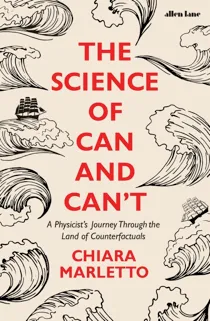
Chiara Marletto
Most laws of physics tell us what must happen. Throw a ball in the air and it will come back down. But physicist Chiara Marletto, a Research Fellow at the University of Oxford, says that laws like this only tell us part of the story.
The rest, she says, lie in 'counterfactuals': things that could be. A notebook could be written in. There is no law of physics that tells us whether it will be – but we can't describe what it's for without talking about the possibility.
Marletto believes that counterfactual properties like this could hold the key to solving some of the biggest problems in science, from the biology of life, to artificial intelligence, to climate change.
Project Hail Mary
SQUIRREL_TEXT_13105837
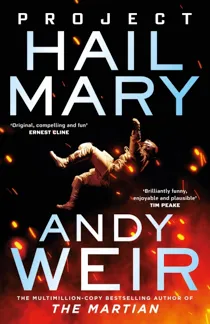
Andy Weir
An important memo to all fans of Andy Weir’s debut novel The Martian (and the Hollywood adaptation): read Project Hail Mary.Now.
While the premise of the new story sounds near identical to the author’s earlier work – a lone man is forced to use his scientific cunning after he becomes stranded from Earth – the introduction of a mystery lifeforce, which we won’t spoil here, blasts the plot in an unexpected direction.
Significantly, the protagonist is no Mark Watney, the astronaut played by Matt Damon in The Martian movie, either. The main character is, well, he doesn’t know what he is, waking from a coma next to two corpses, his memory banks empty. And if that’s not enough to draw you in, we don’t know what will.
SQUIRREL_13105837
Foodology: A Food-lover’s Guide to Digestive Health and Happiness
SQUIRREL_TEXT_13105838
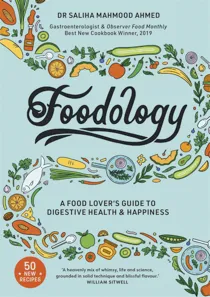
Saliha Mahmood Ahmed
Foodology is part recipe book, part science book, all food. Gastroenterologist and food writer Saliha Mahmood Ahmed takes us on a tour of the digestive system, from the very first bite to... the other end. On the way, she also dives into why food makes us so happy and how a delicious smell can make our mouths water.
On top of all of this, of course, are 50 recipes designed not just to be delicious, but to support your gut health.
SQUIRREL_13105838
Always On: Hope and Fear in the Social Smartphone Era
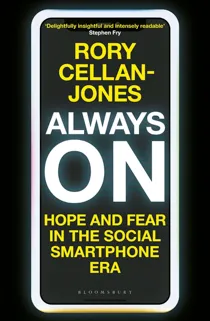
Rory Cellan-Jones
Wake up. Check social media. Send a 'good morning' text. Check the weather app. Check the news... From the moment our alarm apps go off in the morning to when we finally log off Instagram at night, our smartphones are always by our sides.
On the one hand, we can connect with more people than ever before and we have unlimited access to information. But on the other, these devices are encroaching on every aspect of our lives, giving tech companies more access to and more control over everything about us.
Either way, the smartphone has arguably changed our lives more than almost any tool ever invented. In Always On, Rory Cellan-Jones, the BBC's chief technology correspondent, explores whether this is cause for hope or fear.
Handmade: A Scientist’s Search for Meaning through Making
SQUIRREL_TEXT_13069769
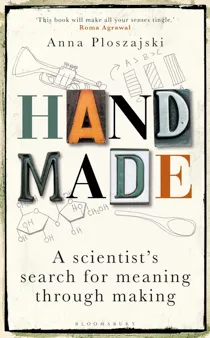
Anna Ploszajski
Scientists tend to think about materials in terms of quantities like their melting point, their density and how much pressure they can withstand. But humanity's earliest materials scientists didn't work in a lab measuring how much stress an object could withstand: they worked with their hands and made things.
Anna Ploszajski, herself a materials scientist, goes back to these ancient roots to explore in a hands-on way. She learns from the trial-and-error wisdom of generations of experts in clay, sugar, steel, glass, paper and more.
SQUIRREL_13069769
Be Who You Want: Unlocking the Science of Personality Change
SQUIRREL_TEXT_13061515
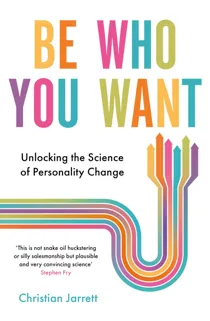
Christian Jarrett
The promise of changing your personality to become who you aspire to be might sound like the domain of life coaches and unconvincing self-help books. But it turns out that such a thing is possible, says psychologist Dr Christian Jarrett.
Using genuine science, Jarrett explains how you really can alter your personality to your liking, whether that's becoming more extroverted or conscientious, or even learning to use the 'Dark Triad' – narcissism, Machiavellianism, and psychopathy – to your advantage.
SQUIRREL_13061515
The Motherhood Complex: The Story of Our Changing Selves
SQUIRREL_TEXT_13071737
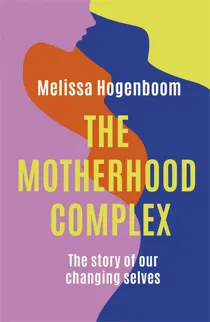
Melissa Hogenboom
People often say that becoming a parent is one of the best things someone can do. But we talk a lot less about how pregnancy and giving birth change the body.
Science journalist Melissa Hogenboom takes on this topic in The Motherhood Complex. She describes every aspect of the experience, from the psychological effect of your changing body to how pregnancy affects the brain.
She also looks at the social side of parenting, drawing on her experience as a mother of two to explore how a parent’s sense of self and relationship to the rest of the world are altered after they have a child.
SQUIRREL_13071737
Shape: The Hidden Geometry of Absolutely Everything
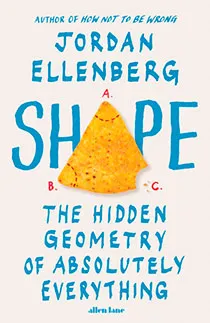
Jordan Ellenberg
Geometry is undoubtedly among most people's least favourite topics from school. Not only is it complicated, it often seems to have no value for the real world. When am I ever going to need to know how to draw an equilateral triangle using only a ruler and a pair of compasses?
It turns out, though, that geometry really does have real-world uses. As Jordan Ellenberg explains in Shape, not only does geometry have uses in physics and artificial intelligence, it also pops up in finance, US politics and even poetry.
Swearing Is Good For You
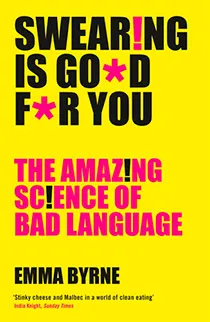
Emma Byrne
The next time someone tells you off for swearing, give them a copy of this book. Byrne explains all the ways in which swearing is good for us, from pain relief to team bonding, and reveals what cursing chimpanzees can tell us about the origin of dirty words.
Mysteries Of The Quantum Universe
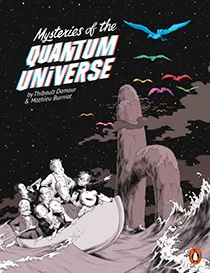
Thibault Damour & Mathieu Burniat
Billed as ‘Tintin meets Brian Cox’, this book performs the tricky task of making quantum physics accessible. Join Bob and his dog Rick on a journey through the world of the very small, talking atoms with Einstein and eating crêpes with Max Planck.
Only Connect: The Official Quiz Book and Only Connect: The Difficult Second Quiz Book
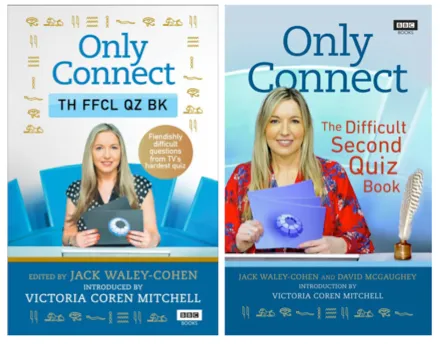
Jack Waley-Cohen and David McGaughey
Train yourself to win an episode of Only Connect, the BBC’s fiendish quiz hosted by Victoria Coren Mitchell. Both books of puzzles get you to find the connections, finish the sequences, defeat the Connecting Walls and decode the phrases with missing vowels.
The puzzles are classics taken from the TV programme, arranged in increasing difficulty. Start with a warm-up from the first heat, and gradually work your way up to questions worthy of the final round.
The Animals Among Us
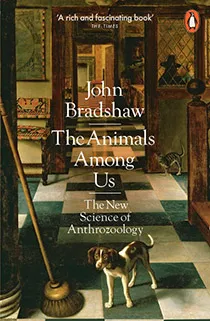
John Bradshaw
Why do we keep pets? Bradshaw argues that it goes beyond cuteness and companionship, and all the way back to an ancient connection in our shared past. Weaving together psychology and evolutionary science, the book will give pet owners a newfound appreciation for their furry friends.
Beyond Infinity
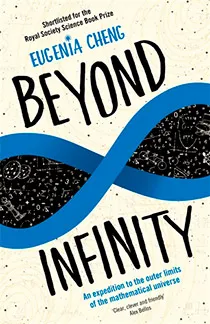
Eugenia Cheng
It takes a talented writer to bring the concept of infinity to life, but Cheng’s infectious enthusiasm makes maths a delight. Discover why some infinities are bigger than others, and why there’s always room at an infinite hotel, even if it’s full.
Graphic Science: Seven Journeys of Discovery
SQUIRREL_TEXT_13105839
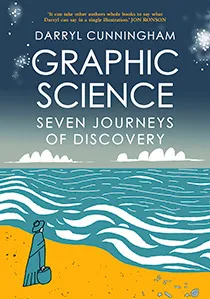
Darryl Cunningham
With his crisp comic art, Cunningham tells the stories of seven scientists who history has rather overlooked. Mary Anning, Alfred Wegener, Fred Hoyle, Jocelyn Bell Burnell… they’re names you may have heard of, but Graphic Science underlines the importance of their work.
SQUIRREL_13105839
Testosterone Rex
SQUIRREL_TEXT_13069767
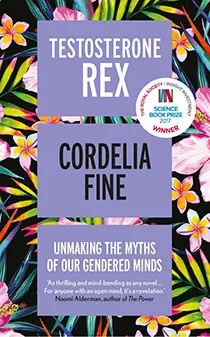
Cordelia Fine
The winner of 2017's Royal Society books prize, Fine cuts through gender stereotypes with panache, dispelling the myth that testosterone creates a deep-rooted division between the sexes and discussing what this means for the society we live in.
SQUIRREL_13069767
Inferior: How Science Got Women Wrong – and the New Research That’s Rewriting the Story
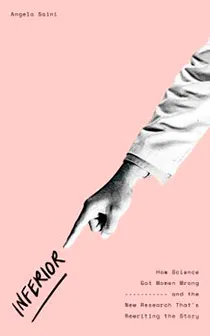
Angela Saini
Another book on our list tackling gender stereotypes, Saini discusses how centuries of science have painted a distorted picture of sex differences, the impact this has had on women in society, and how we’re finally beginning to redress the balance.
Other Minds
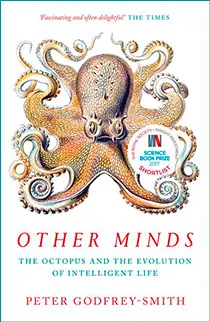
Peter Godfrey-Smith
The octopus is essentially an alien species right here on Earth – a sentient being whose intelligence has evolved entirely independently from our own. Godfrey-Smith peers into the minds of these cephalopods, revealing what they can tell us about the nature of consciousness itself.
Gastrophysics
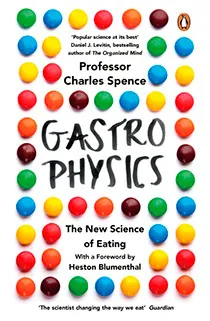
Charles Spence
In this breezy introduction to the new science of gastrophysics, Spence explains why our mealtimes are a truly multisensory experience. It turns out that everything from the background music to the colour and shape of our plates affects the taste of our food.
Women In Science
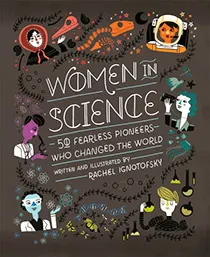
Rachel Ignotofsky
Discover (or rediscover) the work of 50 trailblazing women in science in Ignotofsky’s gorgeously illustrated book. Familiar names like Marie Curie and Ada Lovelace sit alongside lesser-known pioneers such as Maria Sibylla Merian, one of the first and more important entomologists.
Ask An Astronaut
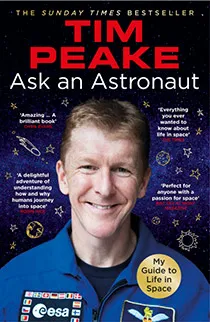
Tim Peake
Who better to describe life in space than someone who’s walked the (space)walk? Tim pens answers to the public’s burning questions, revealing what space smells like, how he enjoyed a cosmic cuppa, and what it felt like to return to Earth.
Caesar’s Last Breath
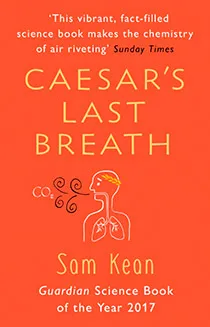
Sam Kean
Every breath we take tells a story as old as the Earth. Kean’s eye-opening guide to the science and history of our atmosphere takes in everything from radioactive pigs and spontaneous combustion to Julius Caesar’s final moments and some unforgettable performance art at the Moulin Rouge.
Out Of Nothing
SQUIRREL_TEXT_13062183
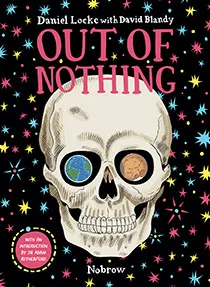
Daniel Locke & David Blandy
Combining science fact with dreamlike imagery, Locke and Blandy’s eye-popping graphic novel celebrates the ingenuity of the human mind. We travel across centuries from Gutenberg’s printing press to Tim Berners-Lee’s World Wide Web, via Picasso, Einstein, Rosalind Franklin and more.
SQUIRREL_13062183
Admissions: A Life in Brain Surgery
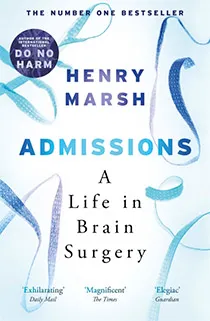
Henry Marsh
Following up 2014’s much-lauded Do No Harm was never going to be easy, but this second part of Henry Marsh’s memoir is an equally honest, human and beautifully written account of the ups and downs of his life as a brain surgeon.
To Be A Machine
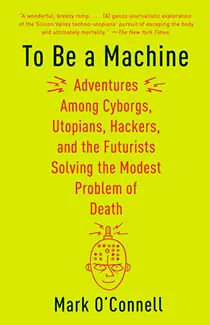
Mark O’Connell
With shades of Jon Ronson and Louis Theroux, O’Connell explores the world of transhumanism, meeting the cyborgs, utopians and futurists who hope to use technology to improve the human condition. It makes for an engrossing, witty and at times disturbing read.
Anatomy: A Cutaway Look Inside the Human Body
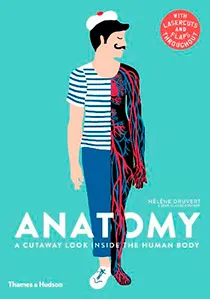
Hélène Druvert & Jean-Claude Druvert
A cutaway book of the human body, Anatomy elicited gasps of delight in the office. Its flaps and delicate lasercuts allow kids to explore the organs, systems and senses that keep us alive, while the accompanying text provides a nice introduction to human biology.
Patient H69
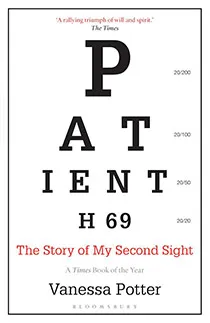
Vanessa Potter
One day, Vanessa Potter started to lose her sight. Within three days, she was completely blind. Patient H69 documents her descent into darkness – and her subsequent recovery as, armed with scientific insight, she began to make sense of her unique condition.
The Angry Chef: Bad Science and the Truth About Healthy Eating
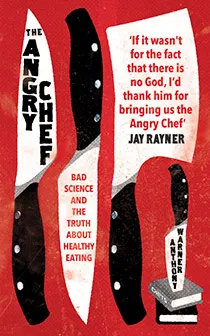
Anthony Warner
Paleo, GAPS, alkaline, detox… so many diets, but do any of them actually work? With scientific rigour and a generous helping of expletives, Warner takes on the food fads one by one, and asks why we’re so easily taken in by pseudoscience in the first place.
The Lost Words
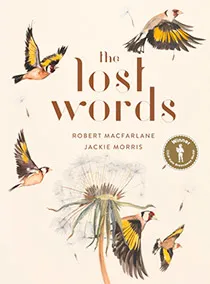
Robert Macfarlane & Jackie Morris
Worried by the way in which natural words (acorn, dandelion, kingfisher, etc) are disappearing from children’s vocabulary, Robert Macfarlane has teamed up with illustrator Jackie Morris to produce this exquisite ‘spell book’, combining acrostic poems with hand-painted artwork.
Nodding Off: The Science of Sleep from Cradle to Grave
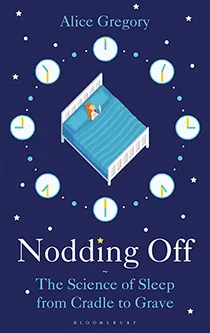
Alice Gregory
After two decades as a prominent sleep researcher, Prof Alice Gregory is well placed to teach us how to sleep better. In Nodding Off, she explains the science of sleep and what happens if we don’t get enough of it. She also offers important tips on how to improve our shut-eye, to help us feel better in our waking hours.
Notes on a Nervous Planet
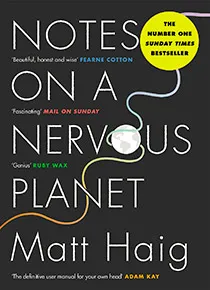
Matt Haig
After experiencing years of anxiety and panic attacks, Matt Haig began to looks for the links between how he was feeling and what was going on around him. Notes On A Nervous Planet is Haig’s look into how to feel happy on a fast and nervous planet, and tells us how we can lead happier, healthier and saner lives.
How to Invent Everything: Rebuild All of Civilization
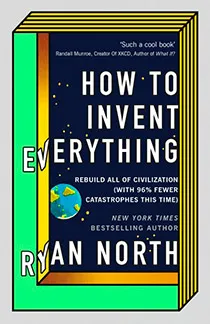
Ryan North
Picture this: you’ve gone back in time for a casual gander at what cavemen were like, or to have a go at taming a dinosaur, but your time machine broke. And you can’t fix it. But don’t stress, you’ve got Ryan North’s informative manual on how to rebuild civilisation from scratch. Get started with inventing language, and then over 400 pages build your way up to modern computers.
Wonders: Spectacular Moments in Nature Photography
SQUIRREL_TEXT_13071754
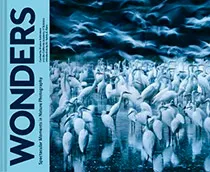
Rhonda Rubinstein
Wonders features the award-winning images from the BigPicture Natural World Photography competition. Along with stunning photos, this science book explains the scientific phenomena and photography behind each shot.
SQUIRREL_13071754
The Happy Brain: The Science of Where Happiness Comes From, and Why
SQUIRREL_TEXT_13071841
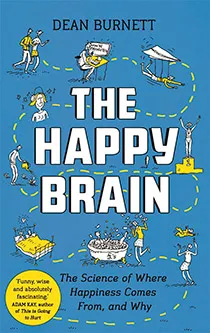
Dean Burnett
In our constant quest for happiness, we change jobs, pursue relationships, watch stand-up comedy and take up hobbies, among many, many other things. Neuroscientist Dean Burnett combines cutting-edge research and views from all kinds of experts to explain where happiness comes from, and why we need it so much.
SQUIRREL_13071841
Totally Random: Why Nobody Understands Quantum Mechanics
SQUIRREL_TEXT_13071842
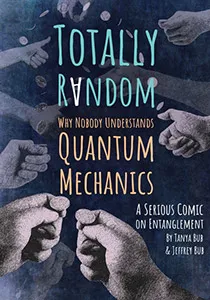
Jeffrey Bub, Tanya Bub
In this graphic novel about entanglement, you’ll learn how quantum physics has led to wild theories about cats who are both dead and alive, and you’ll listen in on Niels Bohr’s therapy sessions with Albert Einstein and Erwin Schrödinger. It’s more fun than you ever thought you could have learning about quantum mechanics.
SQUIRREL_13071842
Brief Answers to the Big Questions
SQUIRREL_TEXT_13062180
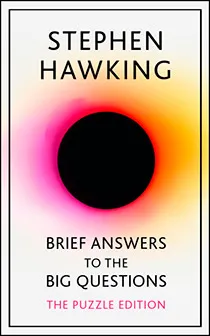
Stephen Hawking
Published posthumously, Stephen Hawking’s last book tackles some of the Universe’s biggest questions. Is time travel possible? Is there other intelligent life in the Universe? How do we shape the future? And unlike A Brief History Of Time, this one is actually intelligible to the average armchair reader.
SQUIRREL_13062180
Inventing Ourselves: The secret life of the teenage brain
SQUIRREL_TEXT_13073528
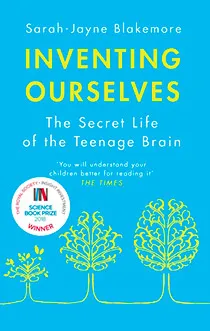
Sarah-Jayne Blakemore
Adolescence is a crazy time: there’s a need for intense friendships and extreme risk-taking, and it’s also when many mental illnesses begin to develop. In her book, which won the Royal Society Insight Investment Science Book Prize 2018, neuroscientist Sarah-Jayne Blakemore draws on cutting-edge research to explain what’s happening in the brains of teenagers, and what it can tell us about how we’ve all developed.
SQUIRREL_13073528
Endure
SQUIRREL_TEXT_13062190
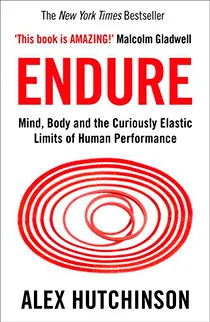
Alex Hutchinson
The capacity to endure underlies most great athletic performances, but what limits endurance? Against the backdrop of some of the world’s best athletes trying to break the two-hour marathon mark, Alex Hutchinson explores new science around what defines our limits: is it our bodies, food, or pain? Or is it all in our heads?
SQUIRREL_13062190
The Science of Sin
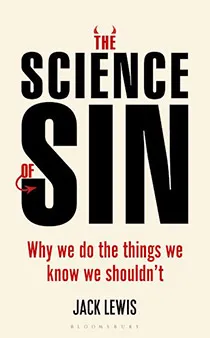
Jack Lewis
We all sin to some extent, whether that’s eating more cake than we know is good for us, or carrying out more serious illicit acts. In The Science Of Sin, neurobiologist Jack Lewis talks us through why we do bad things, illuminates the neural battles between temptation and restraint, and helps us understand why we do the things we know we shouldn’t.
Wildlife Photographer of the Year: Portfolio 28
SQUIRREL_TEXT_13069772
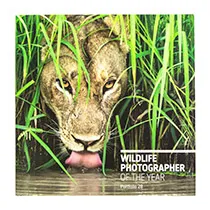
Rosamund Kidman Cox
The Natural History Museum’s annual Wildlife Photographer of the Year competition always delivers beautiful wildlife images. Portfolio 28 features the best of 2018’s competition.
SQUIRREL_13069772
Ocean
SQUIRREL_TEXT_13062192
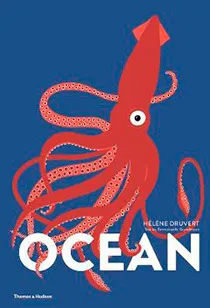
Hélène Druvert, Emmanuelle Grundmann
Ocean by Hélène Druvert and Emmanuelle Grundmann explains the most fascinating facets of the sea, including waves, coral reefs and the food chain. With captivating fold-out infographics and stunning laser-cut illustrations, it’s a beautiful, interactive tome that’ll help both kids and adults appreciate our oceans.
SQUIRREL_13062192
Apollo
SQUIRREL_TEXT_13062197
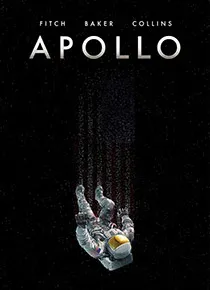
Matt Fitch, Chris Baker, Mike Collins
Apollo tells the suspense-filled story of the first Moon landing in graphic novel form. It’s well-researched and includes rich historical detail, tracking not only the mission itself, but the political tension around the programme and the nerve-racking experience shared by the crew’s families.
SQUIRREL_13062197
Dictionary of Dinosaurs
SQUIRREL_TEXT_13064184
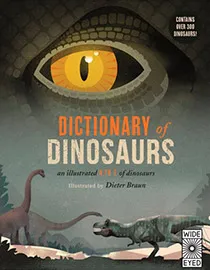
Matthew G Baron
This beautiful book, illustrated by Dieter Braun, details every dinosaur that’s ever been discovered, from Aardonyx to Zuniceratops. It includes up-to-date facts from dinosaur experts about where these creatures lived, what they ate and when they roamed the planet.
SQUIRREL_13064184
Infinite Wonder: An Astronaut’s Photographs from a Year in Space
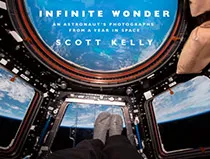
Scott Kelly
Astronaut Scott Kelly had a year that photographers would envy. He circled the Earth 5,400 times, witnessing 10,944 sunrises and sunsets – about 16 per day. From the International Space Station, he viewed our planet in a unique way, and shares his incredible photos with us in Infinite Wonder.
The Weil Conjectures
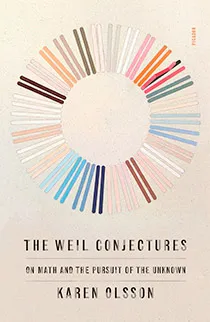
Karen Olsson
André and Simone Weil were brother and sister. One a renowned mathematician known for contributions to algebraic geometry and number theory, the other a famous philosopher and political activist. Maths and philosophy become entangled in this fascinating memoir of the two 20th-Century figures.
Something Deeply Hidden
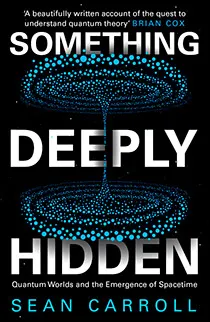
Sean Carroll
From physicist Sean Carroll comes a history of quantum discoveries, and a guide to a subject that has baffled and blinded with its potential. Tackling huge questions, myths and conundrums about our Universe is no easy task, but Carroll does so elegantly.
Anatomicum
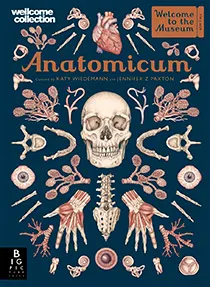
Jennifer Paxton and Katy Wiedemann
This beautiful book explores the human body from underneath the skin as if it were a journey through a museum. Katy Wiedemann’s delicately drawn diagrams accompany Jennifer Paxton’s detailed anatomical information for a learning experience that is quite unlike any other.
Superheavy
SQUIRREL_TEXT_13062227
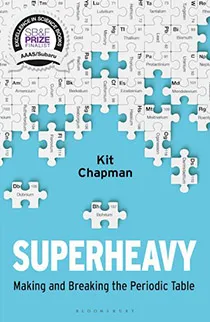
Kit Chapman
How do scientists make elements that don’t naturally exist? In this engaging book, Kit Chapman opens our eyes to the way superheavy, unstable elements at the far reaches of the periodic table have changed our lives, and predicts what’s next for nuclear science.
SQUIRREL_13062227
Superior: The Return of Race Science
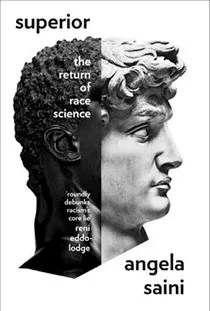
Angela Saini
A timely look at the history of racism and racial bias within the scientific community. Perhaps most shocking is the sign of race science returning to modern conversations around genetics and political power.
The Uninhabitable Earth
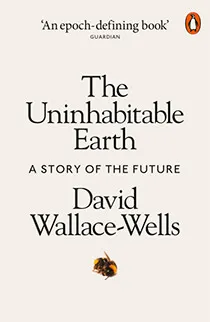
David Wallace-Wells
What will continued climate change do to our planet? The future is much worse than we think, says David Wallace-Wells, who is deputy editor of New York magazine and a science writer. Sparking debate and conversation across the world, The Uninhabitable Earth is one of 2019’s best books.
The NASA Archives: 60 Years in Space
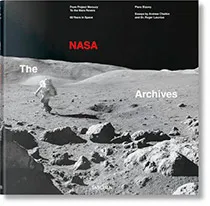
Piers Bizony, Andrew Chaikin and Roger Launius
A stunning visual journey through the NASA archives, documenting six decades of space exploration. Essays discuss the past, present and future of the American space agency, and with over 400 images, illustrations and photographs, most not widely seen by the general public, this is a coffee table book that is a delight to pick up and peruse.
Invisible Women
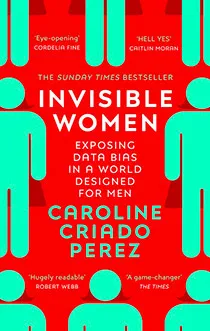
Caroline Criado Perez
The winner of 2019's Royal Society Science Book Prize reveals the shocking way that the world was designed with only one gender in mind. From female participants missing from research studies, to health apps allowing users to track copper intake but not periods, the holes in our knowledge of women – called the ‘gender data gap’ by Criado Perez – has led to a history of discrimination.
Life Changing: How Humans are Altering Life on Earth
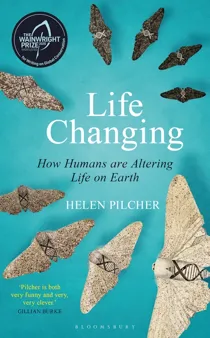
Helen Pilcher
The book that has stood out for me in 2020 is Helen Pilcher's Life Changing. It is a fascinating but complicated topic that necessarily involves bring together a lot of tricky ideas and concepts. Helen's book does exactly that, and in a brilliantly engaging way.
I had the pleasure of doing a festival event online with Helen over the summer and it was a joy to explore some of the many weird, and often not so wonderful, ways we are altering species. – Recommended by Dr Adam Hart
Is Free Speech Racist?
SQUIRREL_TEXT_13062221
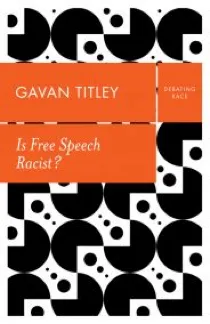
Gavan Titley
This is a small but mighty book.
Titley shows how racists have capitalised on free speech arguments to "reanimate racist discourses", and he soberly, succinctly skewers the claim that the big threat to free speech is from those who challenge racism, or any other kind of prejudice, including transphobia. – Recommended by Angela Saini
SQUIRREL_13062221
Stephen Hawking: A Memoir of Friendship and Physics
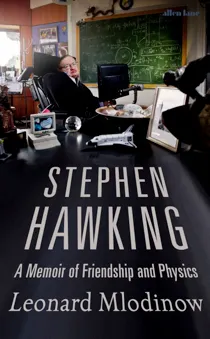
Leonard Mlodinow
This concise memoir of Stephen Hawking swapped back and forth between light-touch biography and personal recollections of a close friendship between Hawking and the author spanning the last fifteen years of Hawking’s life. We think we know Hawking the great scientist but this book highlights the sheer ordinariness of the many daily routines that made up the unseen part of his life.
The stories, told with humour and fondness, mean that I feel I now know Stephen Hawking a little better. – Recommended by Prof Jim Al-Khalili
Some Assembly Required: Decoding Four Billion Years of Life, from Ancient Fossils to DNA
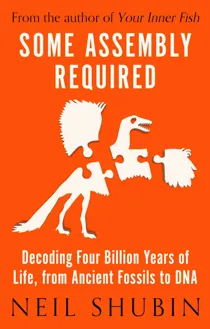
Neil Shubin
Neil Shubin’s book is one that completely changed my understanding of evolution. I understood how small changes evolved – gradually changing colour or brains getting bigger. But it wasn’t until I read this book that I could finally get my head around how the really big changes happened, like moving from the ocean to land or learning to fly.
The things I learned from this book stayed with me – I’m still dropping facts into conversation. – Recommended by Sara Rigby
What Have I Done?
SQUIRREL_TEXT_13105846
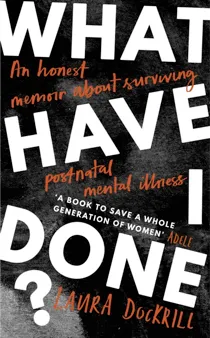
Laura Dockrill
Laura has tackled an extremely difficult and often taboo subject with searing honesty and humour. As a person struggling with postnatal mental health challenges myself, reading someone else's difficulties in print made me feel less alone. A scary number of parents suffer with similar issues but it's rarely spoken about, especially in such an open way.
I'm so sorry about what Laura went through, but am very grateful to her for sharing her story as it gives me, and I'm sure others, hope, that we can get through it. – Recommended by Roma Agrawal
SQUIRREL_13105846
Horizon
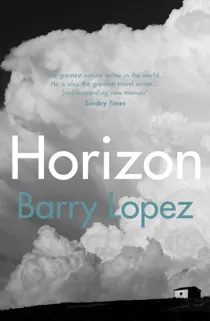
Barry Lopez
I’ve been dying to read Barry Lopez’s Horizon, the long-awaited full-length follow up to his 1986 Arctic Dreams, but for various reasons I saved it until the paperback release in 2020, and I’m so glad I did.
This was the perfect 2020 book. With Lopez as my guide, I escaped on six long, inspiring journeys — from the Kenyan desert to Antarctica — that made me gasp, cry, smile and think very differently about the world. My copy is full of notes and scribbles and I know I’ll be returning to Lopez’s magnificent prose and challenging ideas for years to come. –Recommended by Dr Helen Scales
Spoon-Fed: Why Almost Everything We’ve Been Told about Food is Wrong
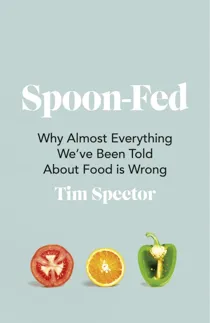
Tim Spector
Don’t go shopping when you’re hungry. That’s really the only rule I have when it comes to food. But, as I get older, my body is telling me I might need to make a few changes. The trouble is, it seems the more we understand about how food affects our health and mood, the more complicated it is to decide what we ought to put in our bodies.
Prof Tim Spector’s book is an easy-to-digest guide to all the controversies in the world of diet and nutrition right now. Do diets ever work? Should we all be eating less salt? Are carbs the devil’s work?
Without ever shying away from the complicated science, Spector's book satisfyingly arrives at some simple advice that would probably improve most diets. In short: listen to your body and eat diversely. It’s a breezy read, and I’ll be honest, probably the first book about food I’ve read cover-to-cover that that didn’t have a recipe in it. – Recommended by Daniel Bennett
Kindred: Neanderthal Life, Love, Death and Art
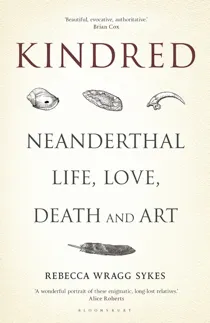
Rebecca Wragg Sykes
Kindred by Rebecca Wragg Sykes is a sensitive, beautiful and very human view of our ancient relatives, the Neanderthals. Her writing is lyrical, insightful and poignant, and her enthusiasm is infectious. Highly recommended. – Recommended by Dr Helen Pilcher
The Gynae Geek: Your No-Nonsense Guide to ‘Down-There’ Healthcare
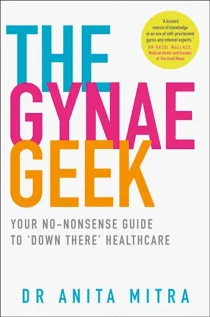
Dr Anita Mitra
I’ve followed Dr Anita Mitra, aka The Gynae Geek, on Instagram for a while and always loved her accessible approach to female health. This year, I decided to treat myself to a copy of her paperback book. I have a science-based education and work at BBC Science Focus, so like to think that I have a pretty good grasp of anatomy and biology, but like many people of my age, my school sex education was abysmal.
This book not only gave no-nonsense, non-judgmental advice about ‘down there’ but also left me absolutely gob-smacked by some facts about the female reproductive system. Did you know, for example, that the Fallopian tubes are mobile, and one tube can pick up an egg from the opposite ovary? Nope, neither did I!
It’s also a wonderful form of support for anyone who is worried about pregnancy, polycystic ovary syndrome, endometriosis or other gynaecological concerns, and can either put your mind to rest or help you decide if you need to reach out to a healthcare professional. – Recommended by Alice Lipscombe-Southwell
A Libertarian Walks Into a Bear: The Utopian Plot to Liberate an American Town (And Some Bears)
SQUIRREL_TEXT_13062108
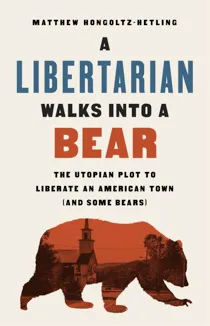
Matthew Hongoltz-Hetling
While it's not strictly an official 'science' book, it is nonetheless an alarming, eyebrow-raising and often hilarious true life tale of what happens when a fringe political ideology clashes with the real world, in ways which incorporate economics, conservation, zoology, parasitology, environmentalism, various types of psychology and animal behaviour studies, and more. – Recommended by Dean Burnett
SQUIRREL_13062108
A Perfect Planet: Our One in a Billion World Revealed
SQUIRREL_TEXT_13063973
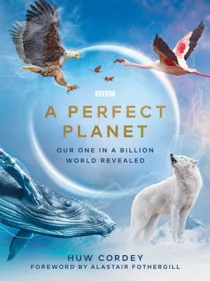
Huw Cordey
Published to accompany Sir David Attenborough’s latest five-part series due to air on BBC One in the New Year, this is a book brimming with spectacular photography and great behind-the-scenes details. Each chapter covers a major topic; the Sun, weather, the oceans, volcanoes and humans, and tells the story of how the combination of these five ingredients somehow coalesced to form our perfect planet.
It has all the major bases covered, too. Crocodiles trying to catch birds? Check. Crazy scientist standing next to an erupting volcano? Check. Cryogenic frogs that freeze their blood and later come back to life? Check!
A short review like this (especially in the hands of an untrained picture editor) can’t really do a book justice, but if you love wildlife and appreciate great photography then this is the book you want. – James Cutmore
SQUIRREL_13063973
Cosmic Clouds 3-D: Where Stars Are Born
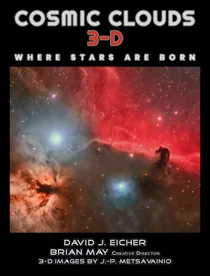
David Eicher and Brian May
Legendary Queen guitarist Brian May brings us the first book to show cosmic clouds of gas and dust – nebulae – in 3D.
I often think the beauty of the night sky is epic enough to rival the revered art that hangs in major galleries around the world. Now this gorgeous book allows us to see them like never before. – Recommended by Colin Stuart
Drugs Without the Hot Air: Making Sense of Legal and Illegal Drugs
SQUIRREL_TEXT_13062210
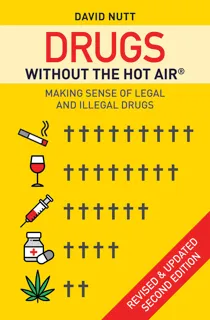
David Nutt
Anyone wanting a clear-headed primer on the science of what drugs are, how they work, and why people take them need look no further than David Nutt’s landmark work.
The second edition was published in early 2020 and includes the latest developments in the science as well as the addition of several up-to-date case studies. There’s a lifetime’s worth of knowledge and research to dig into here but thanks to Nutt’s direct, no nonsense writing style the book also serves as a masterclass in science communication. – Recommended by Jason Goodyer
SQUIRREL_13062210
Diary of an Apprentice Astronaut
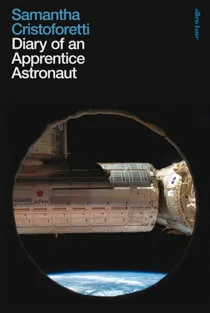
Samantha Cristoforetti
Lately, I have become as fascinated by the way that humans relate to science and the natural world, as I am to the scientific breakthroughs themselves. I’ve also, for the first time, realised just how momentous it is to be sending people into space. Having never known a time when this hasn’t happened, it’s taken me a while to get it into perspective!
So, this diary of what it is like to go through astronaut training for a 200-day mission to the International Space Station crossed my desk at exactly the right time. ESA astronaut Samantha Cristoforetti writes with honesty. Her prose is simple and down to Earth, which increased my empathy for her story. – Dr Stuart Clark
The Children of Ash and Elm: A History of the Vikings
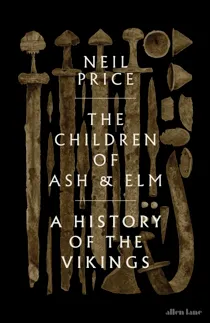
Neil Price
This spectacular book is more than traditional history, as many of its surprising – often strange – revelations about Viking life come not from texts, but archaeology.
Price guides us through their vast world, studding his grand narrative with extraordinary details: isotopic identification of Scandinavian skeletons in Russia, silk caps from York and Lincoln probably from the same Byzantine bale, and a candle burning until the air inside a burial chamber ran out. – Recommended by Dr Rebecca Wragg Sykes
How to Argue with a Racist
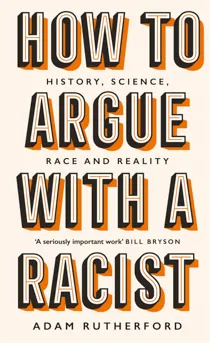
Adam Rutherford
Given the renewed examination of race relations sparked by the tragic death of George Floyd, How to Argue with a Racist is doubtlessly one of the most important reads of 2020. But it’s arguably the most interesting too: debunking racial pseudoscience, geneticist and author Adam Rutherford expertly explains how all humans (including white supremacists) share African and Chinese ancestors – and how, biologically, race is near impossible to define.
As a bonus, it also demonstrates the many flaws of your ancestry DNA test results, and why most Brits are related to Edward III. Engaging and thought-provoking throughout. – Recommended by Thomas Ling
The Little Book of Cosmology
SQUIRREL_TEXT_13061641
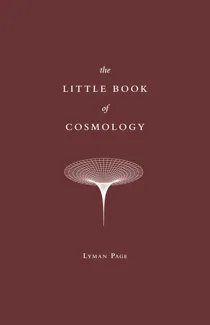
Lyman Page
Lyman Page is a professor of astronomy at the Princeton University in New Jersey and his principal area of research has for decades been the heat afterglow of the Big Bang. Incredibly, it is still around us today, greatly cooled by cosmic expansion in the past 13.82 billion years and accounting for a whopping 99.9 per cent of the photons, or particles of light, in the Universe.
I thought this would be just another book by an academic jumping on the popular science bandwagon and short-changing the public with something pretty ordinary. But nothing could be further from the truth.
This ranks alongside Steven Weinberg’s The First Three Minutes as the best book on cosmology I have read. A compact treasure-trove of cosmic insights to be read, mulled over, and read again. – Recommended by Marcus Chown
SQUIRREL_13061641
Waste: One Woman’s Fight Against America’s Dirty Secret
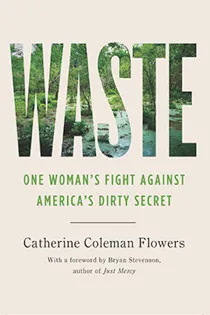
Catherine Colman Flowers
The introduction of the sewage system was one of the revolutionary inventions that changed the world.
This book is a reminder that basic waste sanitation is vital for public health, and is a wake-up call that climate change and rising sea levels will inevitably hit the underprivileged hardest. – Recommended by Jheni Osman
Explaining Humans: What Science Can Teach Us about Life, Love and Relationships
SQUIRREL_TEXT_13069771
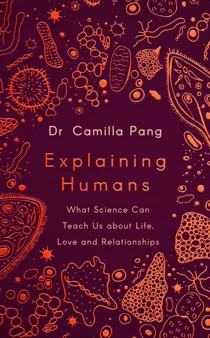
Dr Camilla Pang
If you want to understand how light refracts, or how proteins in the body work, read this book. If you want to make better decisions, or understand how to form fruitful friendship groups, read this book.
It came as no shock to me when Explaining Humans was chosen as The Royal Society's science book of the year in 2020. This book changed my life in many ways. It brought to light aspects of society that I didn't even know I hadn't understood, until now. It enabled me to begin unpicking my reasons for doing things a certain way, to start questioning my own routines and 'rules' for life. – Recommended by Amy Barrett
SQUIRREL_13069771
Science book reading lists
We reckon this is a fine selection of books to read, but there are plenty more that are well worth your time from the annals of history. If you’re looking for a little inspiration, here are a few more of our book recommendations to mull over:
- 28 of the best non-fiction and fiction books we read in 2020
- 20 of the best wildlife books and nature writing
- 16 of the best maths books
- 5 best physics books, according to Jim Al-Khalili
- AI: 5 of the best must-read artificial intelligence books
- 5 race science books you must read
- Science books for kids: 5 books for budding scientists
Are you excited to read any of the books on this list? Let us know what you think of our pick of the best science books out this month by messaging us on Twitter or Facebook, tag us in a picture of you reading any of the books on Instagram, and join the Science Focus Book Club for a community of other science book lovers.